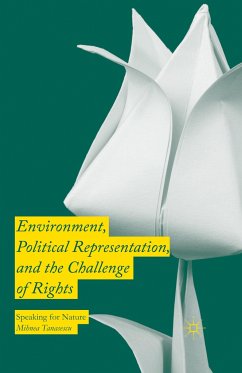
Environmental Philosophy and Ethics in Buddhism
Versandkostenfrei!
Versandfertig in 6-10 Tagen
76,99 €
inkl. MwSt.
Weitere Ausgaben:

PAYBACK Punkte
38 °P sammeln!
This work introduces the reader to the central issues and theories in western environmental ethics, and against this background develops a Buddhist environmental philosophy and code of ethics. It contains a lucid exposition of Buddhist environmentalism, its ethics, economics and Buddhist perspectives for environmental education. The work is focused on a diagnosis of the contemporary environmental crisis and a Buddhist contribution to positive solutions. Replete with stories and illustrations from original Buddhist sources, it is both informative and engaging.












